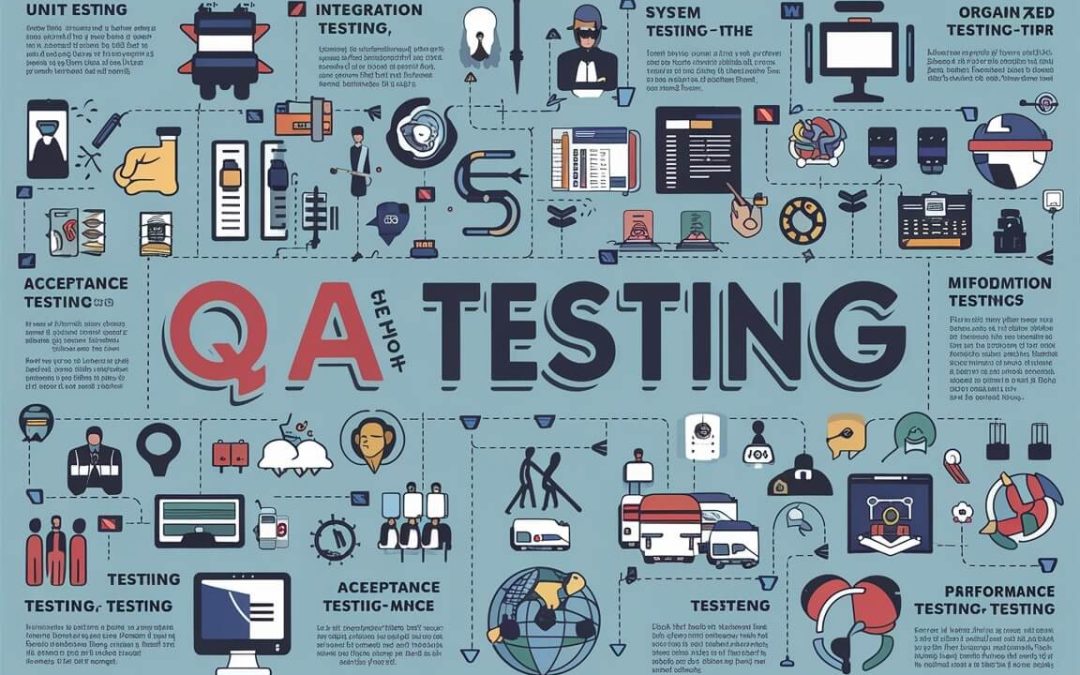Overview
With the help of Top Dynamics 365 Tools businesses can easily craft targeted campaigns across various channels.
Dynamics 365 CRM Features
Sales Hub
Key features include:
- Lead and opportunity management tools to track prospects and potential sales.
- Sales forecasting capabilities to predict future sales and revenue.
- Pipeline management to visualize and manage the sales process.
- The Sales Hub simplifies selling by doing many tasks automatically. This lets salespeople focus more on making sales instead of dealing with paperwork.
- It gives you all the info about customers, their conversations, and previous deals in one spot, helping you understand better.
Sales Automation is a key feature within Top Dynamics 365 tools, aiding in managing leads effectively.
Marketing Hub
Let’s see what benefits you can get:
- It ranks potential customers, helping you spot who’s keen and prepared to chat with sales.
- It has email features that help you make, dispatch, and monitor your email campaigns.
- It offers feedback on your campaign performance, tracking stuff like email opens, clicks, or actual purchases.
- It has ways to help guide potential customers step by step until they’re ready to buy.
- Plus, it lets you personalize messages and pick who exactly should see them so that everyone gets content that feels like it’s made just for them.
- Easy-to-use visual designers and templates make campaign creation efficient.
Marketing Automation in Top Dynamics 365 tools enables businesses to automate and optimize their marketing efforts effectively.
Customer Service Hub
Delivering excellent customer service is key to business success and loyalty. The Customer Service Hub equips your support teams with powerful tools.
Core features include:
- Case management for tracking, prioritizing, and resolving customer issues.
- Knowledge base creation to build a repository of solutions and FAQs.
- AI-powered virtual agents for 24/7 automated support.
- Capabilities like automatic case creation, smart routing, and suggested knowledge articles boost agent productivity.
Field Service Hub
The Field Service Hub helps organizations that rely on CRM field service activities, such as equipment maintenance or on-site repairs, improve their processes.
Key capabilities include
- Intelligent scheduling that optimizes technician routes and availability.
- We are providing tools for assigning jobs, establishing work orders, and managing revisions.
- Resource management for monitoring technician skills, inventory levels, and service cars.
- A mobile app allows field technicians to view work details, adjust statuses, and log service reports.
- The integration of IoT and remote monitoring technologies enables predictive maintenance.
- Machine learning algorithms continually enhance scheduling and routing efficiency.
- Real-time communication and collaboration tools keep everyone in sync.
- Self-service scheduling portals allow clients to make appointments conveniently.
Project Service Automation
The Project Service Automation tool helps businesses efficiently plan, staff, track, and bill for their projects and services.
Core components include:
- Project planning involves calculating the scope, costs, timescales, and resource requirements.
- Resource management will deploy skilled employees and contractors based on availability.
- Track time and expenses using automated approval workflows.
- Invoicing and revenue recognition capabilities are linked to project milestones.
- It provides insight into the pipeline of upcoming projects, manpower requirements, and budget allocation.
- Collaborative tools foster teamwork across dispersed or matrixed project teams.
- AI-driven skills matching suggests optimal resource assignments.
- Real-time dashboards report on key project metrics like costs, schedules, and profitability.
Connections with Dynamics 365 CRM
Microsoft 365 Connection
Key integrations include:
- Outlook for bi-directional email, calendar, and contact sync.
- Teams for collaboration on customer accounts, cases, projects, and more.
- SharePoint for document management and sharing of customer collateral.
- The Microsoft 365 integration creates a cohesive user experience across business tools.
- Information flows naturally between apps, reducing data silos and manual tasks.
- Embedded capabilities like co-authoring documents foster teamwork on shared records.
- Unified search and AI capabilities like Cortana provide intelligent insights.
Power Platform Connection
The Power Platform tools can be easily connected to extend and customize Dynamics 365 CRM.
- Power Apps allows the building of custom apps and processes for any device or system integration scenario.
- For example, build mobile inspection apps or portals for distributors and vendors.
- Power Automate workflows and processes across Dynamics and other data sources.
- Tasks like lead routing, case escalations, and document approvals can be automated.
- Power BI dashboards provide rich data visualization and analytics capabilities.
- Embed interactive reports on sales metrics, campaign ROI, and more within CRM.
LinkedIn Connection
The LinkedIn integration within Dynamics 365 unlocks a wealth of professional data.
From the CRM interface, you can view summarized LinkedIn profiles with details like:
- Work history and experience
- Skills and endorsements
- Mutual connections
- Recent updates and activities
- This context is invaluable for understanding prospects, leads, and existing contacts better.
- Lead and opportunity intelligence surfaces valuable insights on companies and roles.
- Relationship analytics help identify optimal paths for warm introductions via connections.
Accounting Software Connections
Dynamics 365 CRM ensures easy back-office communication by integrating accounting systems like QuickBooks and Xero.
Key integration features include the automated creation of accounts, contacts, and products from accounting data.
- Bi-directional sync of key data like customer details, orders, invoices
- Initiating billing, and invoicing processes from within CRM for closed deals
- Integrated views of accounting data for customers, opportunities, and projects
- The integration of CRM and financial data eliminates duplicate data entry and errors.
- Teams maintain alignment with a “single source of truth” across platforms.
- Financial reporting can be improved with real-time CRM information such as sales pipeline.
E-commerce Platform Connections
For businesses with e-commerce operations, Dynamics 365 offers connections to popular platforms.
Integrations with Shopify, WooCommerce, and other e-commerce tools enable:
- Automatic migration of orders, and customer data into CRM
- Initiating marketing journeys for new e-commerce customers
- Surfacing shopping carts, and order history for call center agents
- Building e-commerce storefronts with CRM data using portals
- United customer data provides a complete 360-degree view across channels.
- Intelligent recommendations and cross-sell opportunities improve online conversions.
- Marketing analytics unify reporting on campaigns and e-commerce impact.
Alternatives to Dynamics 365 CRM
Salesforce
Salesforce CRM stands out as a Top Microsoft Dynamics 365 Alternative, offering a wide array of features for sales, marketing, and customer service.
- Salesforce is a leading and comprehensive CRM platform with a vast array of capabilities.
- Core functionality covers sales, marketing, service, commerce, analytics, and more.
- Highly customizable with a robust ecosystem of app exchange partners and solutions.
- AI-powered features like Einstein enable intelligent lead scoring, forecasting, and process automation.
- The downside is potentially higher costs, especially for smaller businesses.
HubSpot
HubSpot helps you manage your contacts efficiently, watch over deals and sales pipelines closely, and simplify email tasks with easy integration and ready-made templates.
HubSpot CRM is also a Top Microsoft Dynamics 365 Alternatives, known for its user-friendly interface and robust marketing tools.
Marketing Hub includes features for capturing leads, managing email campaigns to nurture these leads, blogging tools, SEO support, social media management, advertisement functionalities, and analytics to track everything.
- Service Hub provides tools for ticket management, knowledge base, feedback surveys, and team inboxes.
- Attractive freemium pricing tiers make it affordable to get started and scale up as needed.
- Drawbacks can include less advanced customization and a lack of enterprise capabilities.
Zoho CRM
You get handy tools for handling leads and contacts, monitoring accounts and opportunities, predicting sales, and automating workflows.
Zoho CRM offers a cost-effective alternative to Top Microsoft Dynamics 365 Alternatives, with customizable solutions for various business needs.
It also comes with marketing tools that let you create web forms, track the effectiveness of your marketing, locate and assess potential clients, and send email campaigns.
- Self-service portal, call center operations, SLA management, and service desk with case management.
- Service desk with case management, a self-service portal, call center operations, and SLA management.
Freshworks CRM
Core features include contact management, deal tracking, email integration, phone, and automation.
- Additional modules for marketing automation, AI capabilities, and customer support tickets.
- A modern user interface (UI) with timelines for each interaction and pertinent data fosters a dialogue-like environment.
- Restrictions might include less sophisticated features in comparison to enterprise CRM systems.
- Teams new to CRM will find it easier to get started thanks to the lower pricing point and free trials.
Pipedrive
Pipedrive is a CRM designed primarily to make tracking sales pipelines highly visual and simple.
Two distinguishing features include a drag-and-drop pipeline view and real-time deal tracking.
Contact profiles, communication tools, process automation, and simple reporting are included.
- Suited extremely well for small sales teams, freelancers, or those prioritizing simplicity over advanced extras.
- Scales to meet the needs of most small to midsize sales organizations with useful integrations.
Key Considerations for Choosing a Right CRM Solution

A guide to Microsoft Dynamics 365 integration helps businesses optimize their CRM system for enhanced performance.
The ability to scale
- The ability of a CRM to develop and evolve with your organization is essential.
- Confirm that the system can handle increasing numbers of users, data volumes, and complexity of processes.
- Look at the scalable pricing models for both the basic CRM and the necessary integrated modules.
- Monthly subscription cloud-based CRMs can grow faster than on-premise systems.
Personalization
Customized CRM software might not be ideal for your particular business requirements, industry, or operations.
- Consider the options for modifying dashboards, fields, processes, layouts, and data models, among other things.
- Non-technical teams may easily customize the CRM with drag-and-drop ease thanks to low-code/no-code tools.
- Open APIs and developer ecosystems enable deeper custom app development if needed.
User Experience
Successful CRM adoption hinges greatly on an intuitive and productive user experience.
- Assess the UX for core user roles – sales, marketing, service, and management across the web and mobile.
- Easy data entry with recommendations, automation of manual tasks, and guided processes are important.
- Navigation, search, reporting, and dashboarding capabilities build efficiency for daily users.
Integration Capabilities
- Give top priority to robust, pre-built integrations for your current systems, such as marketing, ERP, support, and teamwork.
- Integration frameworks via APIs, iPaaS, etc. simplify building custom integrations as needs evolve.
- Embedded apps, app exchanges, and centers of excellence can accelerate integration implementations.
Industry Focus
While most CRMs are horizontal, some solutions focus on certain industries or use cases.
- Manufacturers, professional services, nonprofits, etc. may have specific requirements.
- Evaluate CRMs with preconfigured data models, process reports, etc. for your industry needs.
- Established partners or development resources experienced in your domain can provide advantages.
Mobile Access
With remote work and travel increasing, provide teams with effective mobile CRM access.
- Native apps for iOS/Android with parity to key desktop capabilities are ideal for offline use.
- Responsive web experiences can be sufficient for scenarios with reliable internet connectivity.
- Mobile device management, security, and offline data sync are other considerations.
Support and Training
- Effective CRM roll-outs depend on adequate documentation, training, and support.
- Examine the available training options: on-demand, instructor-led virtual, in-person, etc.
- Self-help portals that include tutorial libraries, communities, and knowledge bases are incredibly helpful.
- Understand technical support channels, service levels, and implementation services offered.
Finding the right MS Dynamics CRM development company is crucial for building a customized CRM solution.
FAQ
1) How does Dynamics 365 CRM stand apart from other CRM options?
It offers a Sales Hub for managing opportunities, forecasting, and driving revenue. Marketing Hub for executing omnichannel campaigns and generating leads.
Customer. Service Hub for case management and world-class support. Field Service Hub for optimizing field operations and service delivery
2) How easy is it to get started with Dynamics 365 CRM?
Microsoft has made getting started with Dynamics 365 quite straightforward:
Simple, pay-as-you-go pricing with the flexibility to buy just what you need. The CRM environment can be swiftly provisioned from Microsoft’s cloud; data can be imported from Excel, Salesforce, and other sources using migration tools; most users only need minimal training due to the user-friendly interface; processes, dashboards, and reports are pre-built and based on best practices; and a plethora of self-help resources, such as tutorials, documentation, and communities, are available.
Many customers start with the free trial and then scale up capabilities over time as usage grows.
3) Can my current systems be integrated with Dynamics 365 CRM?
Indeed. Dynamics 365 provides a wide range of integration options.
Prebuilt connectors for widely used programs such as Teams, Office 365, Outlook, and SharePoint Systems integration with ERP, marketing, accounting, and help desk
Extend with Microsoft Power Platform development for custom apps, workflows, dashboards
Build new integrations quickly and securely using Microsoft APIs
Solutions and templates from Microsoft AppSource for industry scenarios








